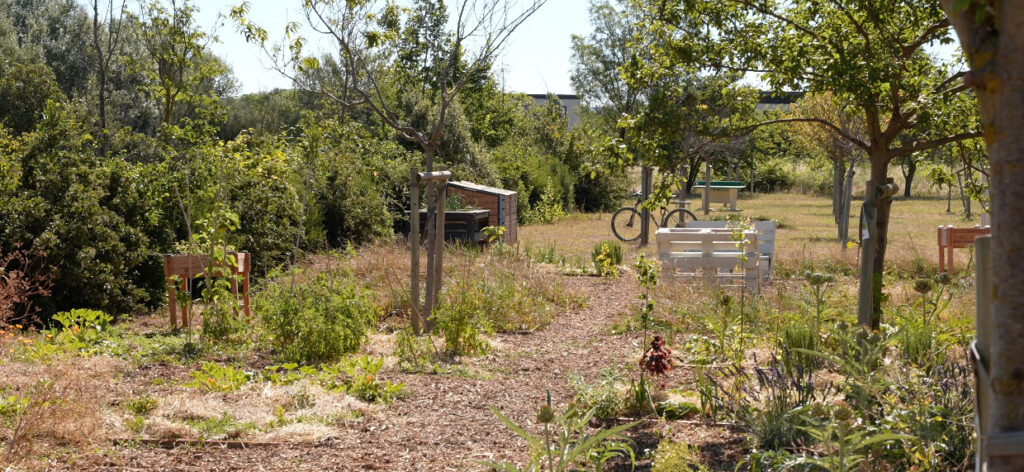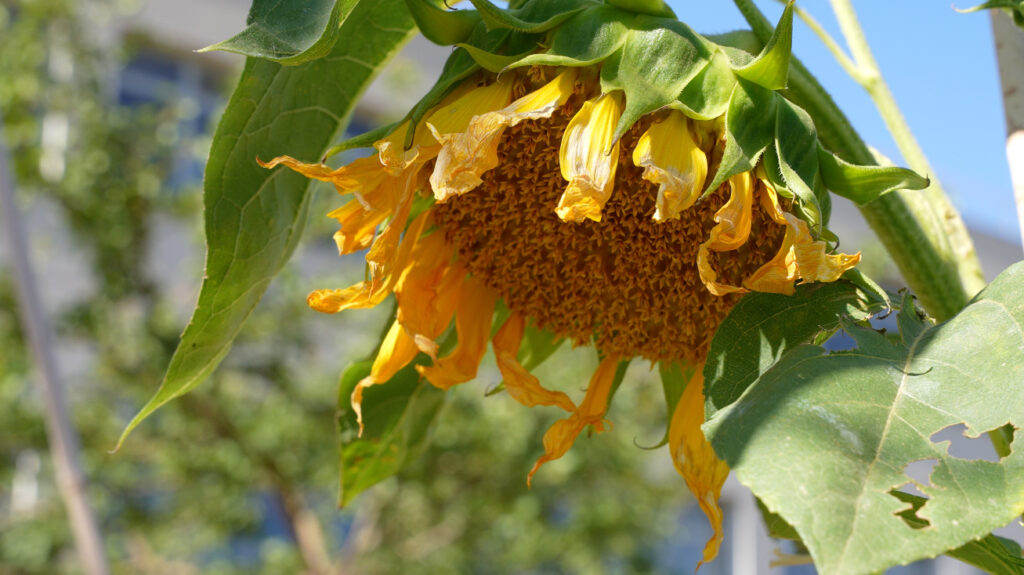Inauguration of the shared vegetable garden: an educational and ecological project at the heart of the Jean-Henri Fabre campus
A shared vegetable garden located in the fruit-growing area of the Jean-Henri Fabre campus in Montfavet has been created this academic year, as part of a tutorial project run by students on the Agroecological Transition of Territories Professional Degree course. The inauguration took place on Friday 5 July in the presence of :
- Joël Guin, President of Greater Avignon;
- Christophe Devaux, President of the Les Jardins du Colibri association;
- Céline Bourgeois, vice-president for environmental transition at Avignon Université ;
- Séverine Suchail, co-responsible for the agro-ecological transition professional degree ;
- Georges Linarès, President of Avignon University.
Project management and monitoring will be carried out thanks to the active participation of students in the bachelor's degree programme, the new "Imagining sustainable agriculture" teaching unit and the Les Jardins du Colibri association, funded by Greater Avignon and Avignon University.
The creation of this vegetable garden is part of the a policy of raising awareness and training students in environmental, climate and social issues. It was set up for educational purposes to raise students' awareness of environmentally-friendly farming practices and to implement various systemic improvements.
The plot of around 500 m² is cultivated according to permaculture principles, i.e. combining several crops and flower strips, producing without the use of synthetic chemicals or techniques that could harm biodiversity. To ensure the long-term viability of the project, a borehole has been drilled so that the plot can be watered regularly, although mulching techniques will be used to reduce water consumption as much as possible.
The project was made possible by two calls for projects from the Institut Agrosciences, Environnement et Santé, a call for projects from the Avignon Université's Appui à la pédagogie universitaire et Innovante (APUI) mission and a Défi Jeunes prize awarded at the Fête Écho (Greater Avignon's environmental festival held last March).
This shared vegetable garden should be sustainable, self-sufficient and environmentally friendly. The students will be experimenting with a range of agroecological techniques, including lasagne cultivation, in which grass, straw, compost and shredded plants alternate, which reduces watering and enhances the microbial quality of the soil, and spiral cultivation, in which a large number of aromatic plants are grown in a small area, providing a habitat for auxiliary fauna.
At the educational level, The aim of the kitchen garden will be to become a genuine tool for disseminating practices and knowledge that are useful to everyone, and a place where people can try out, experiment with and reflect on the transition in the most concrete way possible. It will therefore be a place for collaboration and the exchange of best practice and experience, not only between the various players in the kitchen garden, but also within the university community, which is passionate about 'Growing sustainably together'.
On a social level, The kitchen garden will also help to provide students with healthy, local vegetables. 80 lettuces were distributed at the end of May, and a harvest of onions and shallots is planned soon.
Finally, on a cultural level, In the long term, it could be used as a venue for events focusing on the sustainable environment, among other things, and will be another convivial space within the university.



Updated on 8 July 2024